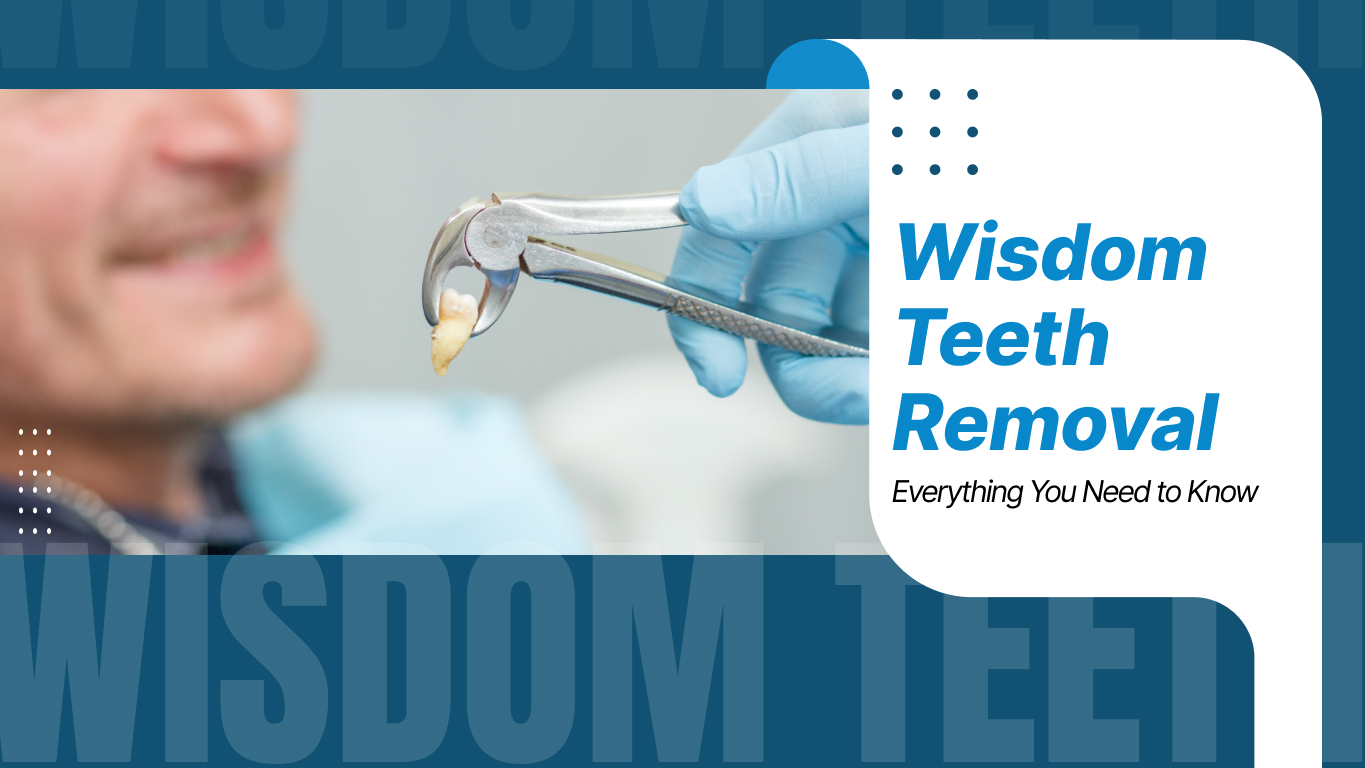Wisdom teeth, also known as third molars, are the last to emerge in your mouth, typically between the ages of 17 and 25. While some people experience no issues with their wisdom teeth, many others face the need for extraction. Understanding when and why wisdom tooth removal is necessary can help you make informed decisions about your oral health and prepare for what might be an inevitable procedure.
Why Do Wisdom Teeth Cause Problems?
The human jaw has evolved over thousands of years, becoming smaller while our teeth have remained relatively the same. This evolutionary mismatch means that many people don’t have enough room in their mouths to accommodate these late-arriving molars. When wisdom teeth attempt to emerge without adequate space, they can become impacted, meaning they’re unable to fully break through the gum line or emerge in the correct position.
Impacted wisdom teeth can grow at various angles they might be angled toward the second molar, angled toward the back of the mouth, or even remain completely horizontal within the jawbone. This improper positioning can lead to a cascade of oral health issues extending beyond simple discomfort.
Common Signs You May Need Wisdom Tooth Removal
Several symptoms indicate that your wisdom teeth may need professional attention. Pain and swelling in the back of your mouth are often the first signs, particularly when chewing or opening your mouth wide. You might notice your gums becoming red, tender, or bleeding around the area where your wisdom tooth is trying to emerge.
Bad breath that persists despite good oral hygiene can also signal problems with wisdom teeth, as food particles and bacteria can easily become trapped around partially erupted teeth. Some people experience jaw stiffness or difficulty opening their mouth fully, while others may notice an unpleasant taste in their mouth that won’t go away.
Headaches and earaches can sometimes be traced back to wisdom tooth problems, as the pain can radiate throughout the head and jaw area. If you’re experiencing any combination of these symptoms, it’s important to consult with a dental professional promptly.
Health Risks of Keeping Problematic Wisdom Teeth
Leaving problematic wisdom teeth untreated can lead to serious oral health complications. Impacted wisdom teeth create pockets where bacteria accumulate, leading to infections that can spread to surrounding teeth and gums. If left untreated, these infections can spread to other body parts and become life-threatening.
Crowding is another significant concern, as wisdom teeth can push against existing teeth, causing them to shift out of alignment. This can undo years of orthodontic work and create bite problems that affect your ability to chew properly and maintain good oral hygiene.
Cysts can develop around impacted wisdom teeth, potentially damaging the jawbone and nearby teeth. In rare cases, tumors can form, though these are typically benign. Decay is also common in wisdom teeth because their location makes them difficult to clean properly, and this decay can spread to adjacent healthy teeth.
The Wisdom Tooth Removal Process
Modern wisdom tooth extraction is a routine procedure that can often be completed in a single visit. Your dentist will first conduct a thorough examination, including X-rays, to assess the position of your wisdom teeth and plan the best approach for removal.
The procedure itself is typically performed under local anesthesia, though sedation options are available for anxious patients or complex cases. The extraction process is similar to removing any other tooth for fully erupted wisdom teeth. However, impacted teeth may require a surgical approach, where the dentist makes a small incision in the gum tissue to access the tooth, sometimes removing small amounts of bone or sectioning the tooth into smaller pieces for easier removal.
Most patients experience minimal discomfort during the procedure, and modern pain management techniques ensure that recovery is as comfortable as possible. Depending on the case’s complexity, the process usually takes 30 minutes to an hour.
Recovery and Aftercare
Recovery from wisdom tooth removal typically takes several days to a week. Immediately following the procedure, you’ll need to bite on gauze pads to control bleeding and allow blood clots to form in the extraction sites. These clots are crucial for proper healing, so avoiding activities that might dislodge them, such as using straws, smoking, or vigorous rinsing, is important.
Swelling and mild discomfort are normal and can be managed with prescribed or over-the-counter pain medications and cold compresses applied to the outside of your face. Eating soft foods and avoiding the extraction sites while chewing will help promote healing. Most people can return to normal activities within a few days, though complete healing of the extraction sites takes several weeks.
Prevention and Early Intervention
While not all wisdom tooth problems can be prevented, regular dental check-ups allow for early monitoring of these teeth as they develop. X-rays can reveal potential issues before symptoms appear, allowing for proactive treatment planning. Early removal of wisdom teeth, typically during the late teens or early twenties, often results in easier procedures and faster recovery than later removal.
Choose Carrum Downs Dental for Your Wisdom Tooth Removal
Choosing an experienced and caring dental team makes all the difference regarding wisdom tooth removal. At Carrum Downs Dental, located at Shop T5, 100 Hall Road, Carrum Downs, we understand that the prospect of wisdom tooth removal can be anxiety-provoking. Our skilled dental professionals are committed to providing gentle, effective care that prioritizes your comfort and well-being throughout the process.
We’re open seven days a week from 9 AM to 5 PM, making it convenient for you to schedule your consultation and procedure at a time that suits your busy schedule. Our comprehensive approach includes thorough pre-treatment evaluation, expert surgical techniques, and detailed aftercare instructions to ensure optimal healing. Don’t let wisdom tooth pain interfere with your daily life Contact Carrum Downs Dental today to discuss your options and take the first step toward better oral health.
Related Post –
Know The Wisdom Teeth Removal Procedure and Complications


